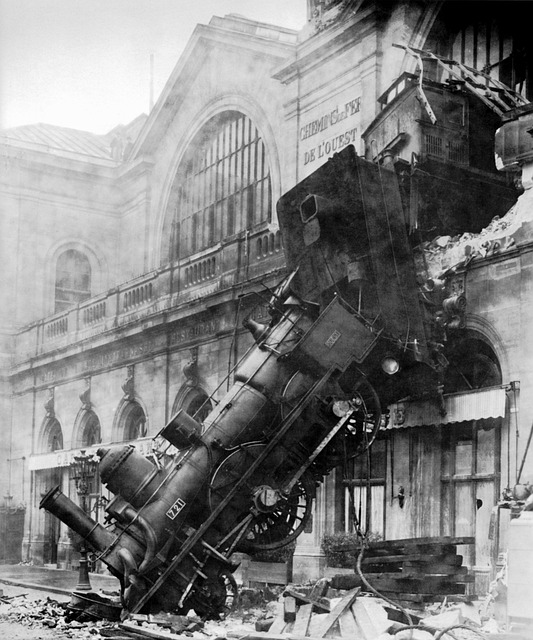“In Brooklyn, motorcycle accidents can have severe consequences, especially when Traumatic Brain Injuries (TBI) are involved. This comprehensive guide delves into the intricate world of motorcycle accident reconstruction, focusing on TBI’s role in local collisions. We explore the impact of brain-related injuries in Queens crashes and provide insights into personal injury claims for victims. Furthermore, safety measures and preventive tips are highlighted to reduce TBI risks on Brooklyn roads. Understanding these aspects is crucial for both riders and legal professionals navigating the complexities of TBI cases.”
- Understanding Motorcycle Accident Reconstruction: A Comprehensive Guide
- The Role of TBI (Traumatic Brain Injury) in Brooklyn's Motorcycle Collisions
- Uncovering the Facts: Brain-Related Injuries in Queens Motorcycle Crashes
- Legal Aspects: Navigating Personal Injury Claims for TBI Victims
- Preventive Measures and Safety Tips to Reduce TBI Risk on Brooklyn Roads
Understanding Motorcycle Accident Reconstruction: A Comprehensive Guide

Motorcycle accident reconstruction is a meticulous process that involves analyzing and recreating the events leading up to and during a motorcycle collision. It’s a crucial step in understanding the dynamics of the incident, determining liability, and securing just compensation for victims, especially when serious injuries like TBI (Traumatic Brain Injury) occur. In Brooklyn or any urban area with heavy traffic, these reconstructions are vital to navigating complex legal landscapes.
The process begins with gathering evidence—from medical records detailing the victim’s injuries to police reports and witness statements. Advanced technologies such as 3D modeling and computer simulations play a significant role in visualizing the accident scene and reconstructing the trajectory of both the motorcycle and other vehicles involved. Experts in this field analyze factors like road conditions, weather, rider behavior, and vehicle mechanics to provide a comprehensive understanding that can significantly impact personal injury cases, particularly when dealing with TBI in Queens or any part of Brooklyn.
The Role of TBI (Traumatic Brain Injury) in Brooklyn's Motorcycle Collisions

In many motorcycle accidents, Traumatic Brain Injury (TBI) often goes undiagnosed immediately after the crash due to the lack of visible external injuries. However, TBI brain injuries in Brooklyn are a significant concern, as they can have severe and long-lasting effects on riders’ lives. These injuries range from concussions to more severe forms that may impact cognitive abilities, memory, and motor skills. The bustling streets of Brooklyn, with their dense traffic and high motorcycle volumes, increase the likelihood of collisions, making TBI brain injuries in Queens a pressing issue for riders and medical professionals alike.
Motorcycle accident reconstruction experts play a vital role in identifying potential causes of such incidents, including driver negligence, road conditions, or mechanical failures. By analyzing evidence like crash scenes, vehicle damage, and witness statements, they can determine the sequence of events leading up to the collision. This process helps ensure that those responsible for TBI brain injuries in Brooklyn are held accountable, and it provides crucial insights to prevent similar incidents from happening again, enhancing safety measures for all road users.
Uncovering the Facts: Brain-Related Injuries in Queens Motorcycle Crashes

In the aftermath of a motorcycle accident in Queens, understanding the extent of injuries sustained is crucial, especially when it comes to brain-related trauma. Many motorcycle crashes result in head injuries, with Traumatic Brain Injuries (TBI) being a significant concern. These injuries can range from mild concussions to severe, life-altering conditions. Given the vulnerable nature of motorcyclists, recognizing and documenting TBI symptoms is essential for accurate accident reconstruction.
When investigating Queens motorcycle crashes, medical professionals play a vital role in identifying brain injuries. They look for signs such as disorientation, memory lapses, headaches, dizziness, and changes in behavior—all common symptoms of TBI. Accurate reporting of these symptoms can significantly impact insurance claims and legal proceedings, ensuring victims receive the necessary support and compensation for their injuries, including long-term care and rehabilitation.
Legal Aspects: Navigating Personal Injury Claims for TBI Victims

When it comes to personal injury claims, especially for individuals suffering from traumatic brain injuries (TBI) in Brooklyn, understanding the legal aspects is a complex process. TBI victims require dedicated and experienced legal representation to navigate the complexities of their case. These cases often involve extensive medical documentation and expert testimony to establish liability and determine compensation.
In New York, personal injury claims for TBI are governed by specific laws and regulations. Victims must prove negligence on the part of the at-fault party, which can include drivers, businesses, or municipalities. The impact of a TBI can be profound and long-lasting, affecting cognitive functions, emotional well-being, and daily living activities. Legal experts specializing in brain injuries in Queens understand the intricate relationship between medical evidence and legal strategies. They work tirelessly to ensure that their clients receive fair compensation for medical expenses, lost wages, pain and suffering, and other related damages.
Preventive Measures and Safety Tips to Reduce TBI Risk on Brooklyn Roads

Motorcycle accidents in Brooklyn, particularly those resulting in traumatic brain injuries (TBI), underscore the need for heightened safety awareness. While reconstruction plays a critical role in understanding causes, prevention is key to reducing TBI risk. Riders can significantly enhance their safety by adopting proactive measures. This includes wearing approved helmets that meet or exceed Safety Standard 2120, ensuring proper fitting and secure fastening. Additionally, visible clothing can help drivers spot motorcyclists, enhancing overall road safety.
Other preventive measures include maintaining a safe following distance from other vehicles, especially in traffic congestion. Riders should also be aware of potential hazards like potholes, abrupt turns, and sudden stops. Staying alert, avoiding distractions such as mobile phones, and adhering to traffic rules can substantially decrease the likelihood of accidents. In Brooklyn, where dense traffic and diverse road conditions prevail, these safety tips are essential for motorcyclists looking to navigate the city responsibly and reduce TBI risk in case of an unfortunate event.
Motorcycle accident reconstruction plays a pivotal role in understanding and mitigating risks, especially regarding traumatic brain injuries (TBI) in Brooklyn and Queens. By delving into the legal aspects and safety measures outlined in this article, riders can better protect themselves on the roads. Recognizing the unique challenges posed by TBI, from collision analysis to personal injury claims, is essential for fostering safer riding environments in these urban centers. Through informed prevention and proactive safety tips, folks can navigate Brooklyn’s bustling streets with enhanced awareness, reducing the risk of TBI-related incidents.
